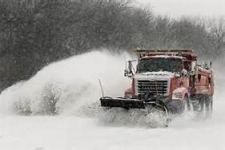 The perils and discomfort of winter weather are fodder for the nightly news, but they present a whole different issue for caregivers of individuals with dementia. The caregiver’s task of having to come up with activities to fill the day now becomes one of limiting activities to those done indoors. An often resultant malady called cabin fever, courtesy of snow and ice, can make the day feel endless.
The perils and discomfort of winter weather are fodder for the nightly news, but they present a whole different issue for caregivers of individuals with dementia. The caregiver’s task of having to come up with activities to fill the day now becomes one of limiting activities to those done indoors. An often resultant malady called cabin fever, courtesy of snow and ice, can make the day feel endless.
The Alzheimer’s Association has a few tips to help caregivers weather the storms:
- When planning activities, think about how the person for whom you are caring historically enjoyed spending his or her time.
- Adjust these activities so they are doable and safe, while also meaningful for the person with dementia and caregiver alike.
- It is important not to infantilize the person by asking them to do activities which may be below their current level of functioning.
- When engaging in an activity, minimize distractions. Turn off the television and your cell phone.
- Be present with the person during the activity. Give the person you’re caring for your undivided attention, which will feel good for you both.
The Internet, of course, provides innumerable suggestions for indoor activity, but I just found a site, Elder One Stop, that offers ideas that go beyond “the usual.” Check it out at http://www.elder-one-stop.com/dementia-activities.html.
Posted by Patty Hagen, Director of Memory Care Programs, Charles E. Smith Life Communities





